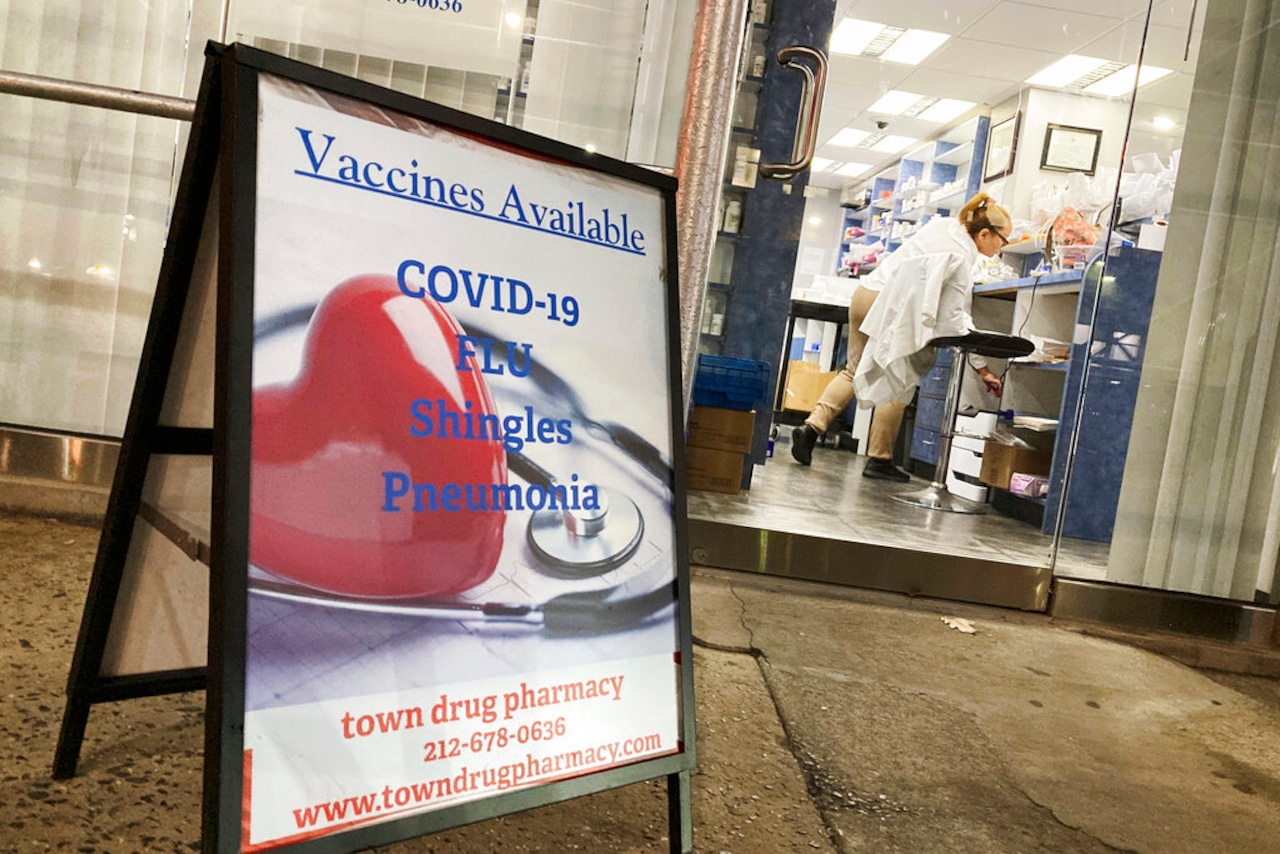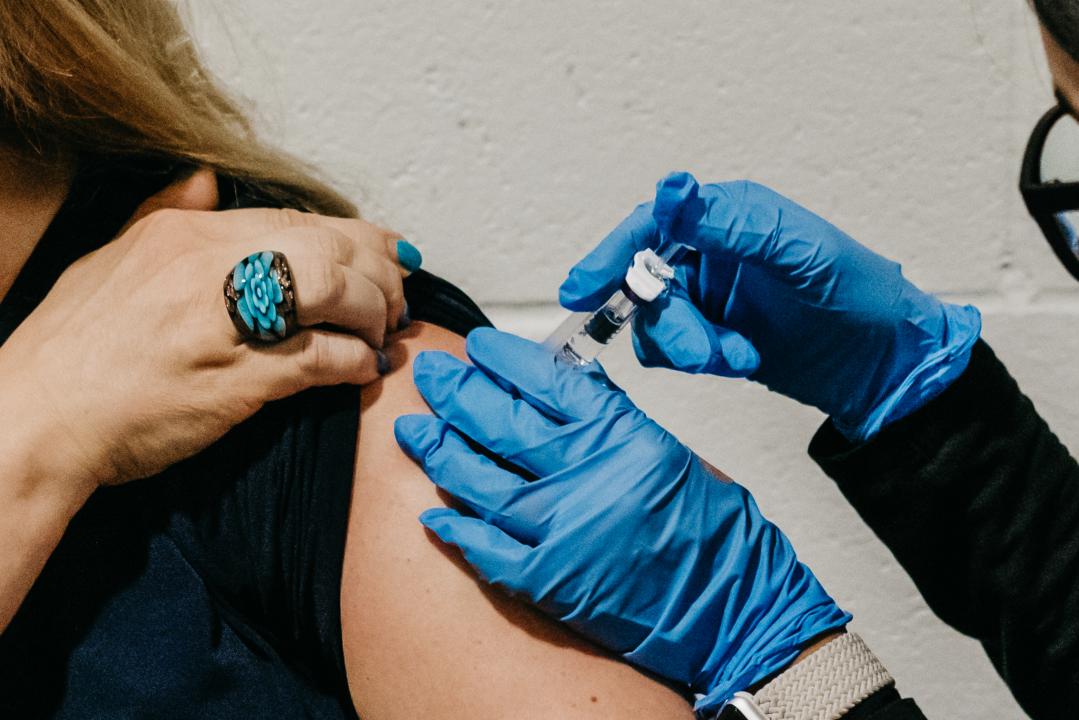Workforce Recall: Federal Health Agencies Scramble to Rehire After Mass Exodus
Health
2025-04-04 10:17:50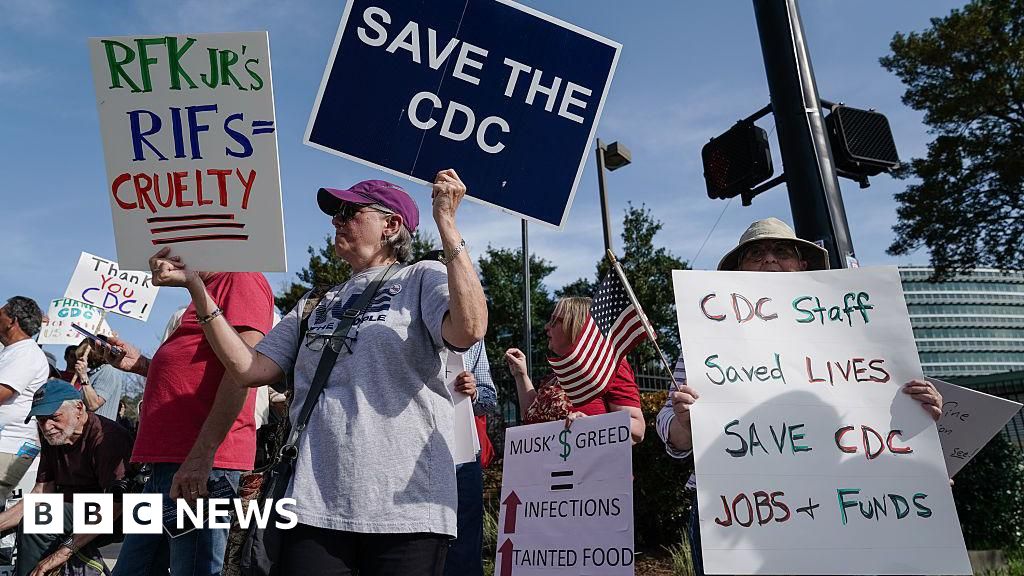
Rapid Government Downsizing: A Complex Journey of Transformation Government officials candidly acknowledge that ambitious efforts to dramatically reduce the size and scope of public administration are rarely smooth or error-free. The process of streamlining bureaucratic structures involves inherent challenges and potential missteps that are almost unavoidable during significant organizational restructuring. Experts emphasize that while the goal of creating a leaner, more efficient government is noble, the implementation requires careful strategic planning and realistic expectations. The path to meaningful governmental reform is often marked by unexpected complications and necessary adjustments. "Mistakes are not just possible, but practically inevitable when undertaking such a comprehensive transformation," said one senior policy advisor. "The key is to anticipate potential issues, remain adaptable, and maintain a clear vision of the ultimate objective." The candid admission highlights the complexity of governmental redesign, suggesting that stakeholders must approach such massive changes with patience, pragmatism, and a willingness to learn from initial setbacks. Successful downsizing demands more than just reducing personnel or budget—it requires a nuanced understanding of institutional dynamics and potential ripple effects. As governments worldwide continue to explore more efficient administrative models, the recognition of potential challenges becomes an essential part of the strategic planning process. MORE...
Federal Judge Halts Trump's $11B Healthcare Funding Cutoff in Dramatic Legal Showdown
Health
2025-04-04 10:01:08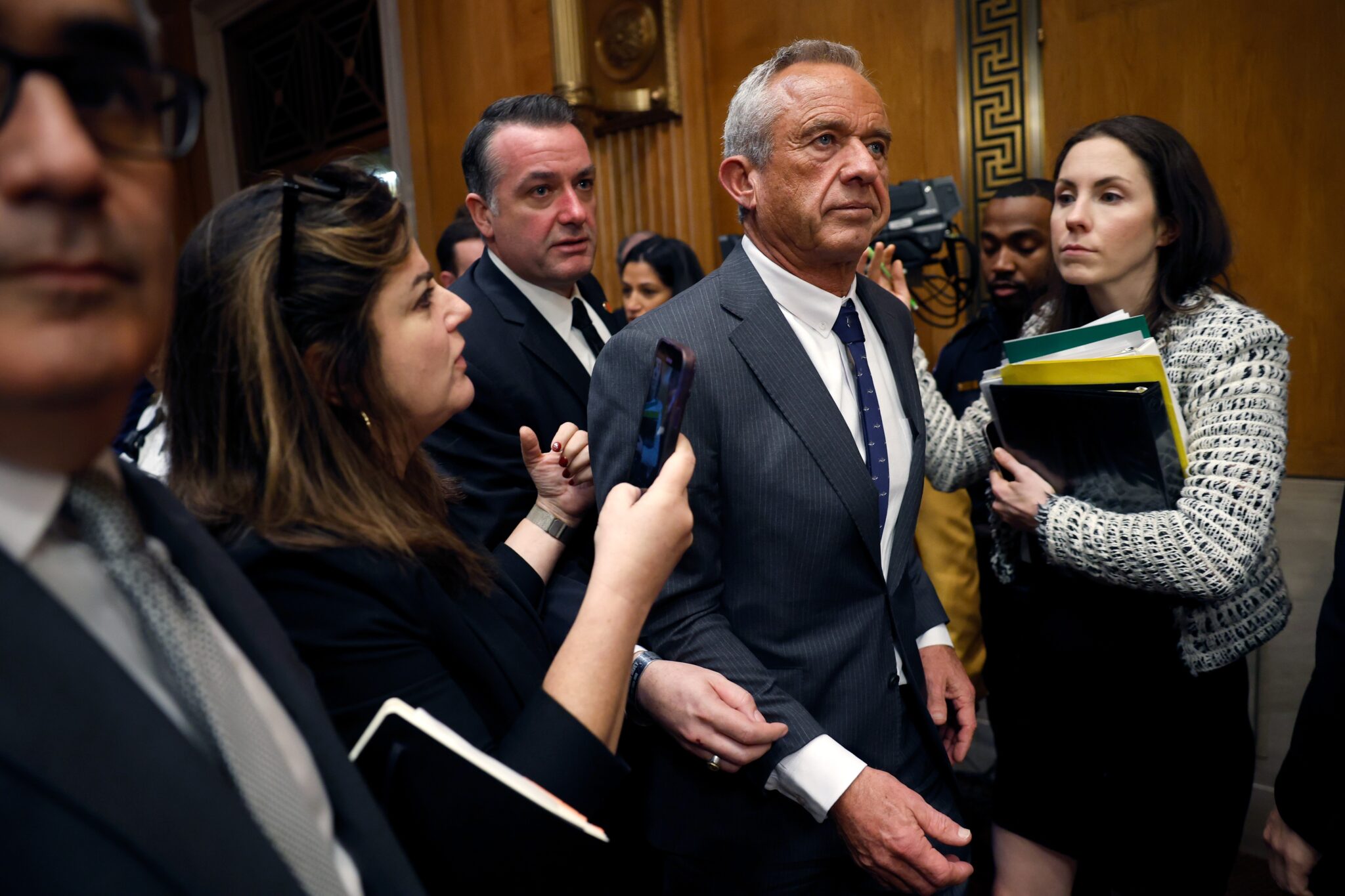
In a significant legal victory for Democratic state leaders, a federal judge in Rhode Island has signaled her intent to temporarily block the Trump administration's attempt to cut critical state health grants. During a Thursday afternoon hearing, U.S. District Court Judge Mary McElroy expressed strong support for the coalition of 24 Democratic attorneys general and governors, suggesting they are likely to succeed in their legal challenge. The ruling represents a crucial moment for states seeking to protect their healthcare funding amid ongoing federal policy disputes. Judge McElroy's preliminary indication signals a potential roadblock for the administration's proposed grant reductions, highlighting the ongoing tension between federal directives and state-level healthcare needs. The bipartisan group of state leaders argued that the proposed cuts would severely impact essential health services and potentially harm vulnerable populations. Their swift legal action demonstrates a coordinated effort to challenge what they view as potentially harmful federal healthcare policies. MORE...
Controversial Idaho Bill Threatens Citizen Welfare and Public Health, Experts Warn
Health
2025-04-04 10:00:05
In the intricate web of community health, our well-being is fundamentally interconnected. What impacts one group can ripple out to affect the entire population's health and safety. The recently passed House Bill 135 in Idaho highlights this delicate balance, introducing citizenship verification requirements for critical health and support services. The bill's scope is broad, potentially affecting access to essential services such as immunizations, communicable disease testing, prenatal care, and vital support systems like food and shelter assistance. By implementing these new verification protocols, the legislation raises important questions about healthcare accessibility and community health equity. As the bill moves forward, its implications extend far beyond individual circumstances, touching on broader themes of public health, social support, and the fundamental right to basic healthcare services. The community now watches closely to understand how these new requirements will shape healthcare access and community well-being. MORE...
Debt Relief Bombshell: $30 Billion Medical Burden Erased, But Is It Just the Tip of the Iceberg?
Health
2025-04-04 10:00:00
In a groundbreaking move, RIP Medical Debt is providing life-changing relief for millions of Americans burdened by overwhelming healthcare expenses. The nonprofit organization has successfully eliminated medical debt for an astounding 20 million people, marking a significant milestone in addressing the healthcare financial crisis. The breakthrough comes as the debt trading company that previously owned these medical bills has decided to exit the market, creating an unprecedented opportunity for debt relief. This development means that countless families will be freed from the crushing weight of medical expenses that have long threatened their financial stability. Medical debt has been a persistent challenge for many Americans, often pushing families into financial hardship and potentially devastating economic circumstances. RIP Medical Debt's intervention represents a beacon of hope for those struggling under the weight of unexpected and often unmanageable healthcare costs. By purchasing and then forgiving these medical debts, the organization is not just clearing financial records, but also providing real emotional and economic relief to millions of individuals and families across the United States. This initiative highlights the critical need to address the systemic challenges in healthcare financing and offers a compassionate solution to a widespread problem. MORE...
Health in Crisis: The Devastating Ripple Effects of USAID's Vanishing Global Programs
Health
2025-04-04 10:00:00
When Global Health Hangs in the Balance: The Human Cost of USAID Budget Cuts For decades, the United States Agency for International Development (USAID) has been a lifeline for millions of children worldwide, transforming global health through strategic and compassionate interventions. These programs have been nothing short of miraculous, preventing countless preventable deaths and offering hope in some of the world's most vulnerable communities. But what happens when these critical lifelines are suddenly threatened by budget reductions? The potential consequences are stark and deeply human. Each cut represents more than just a line item in a budget—it represents real lives at risk, children who might not survive treatable illnesses, and communities left without essential medical support. USAID's health initiatives have been instrumental in dramatically reducing child mortality rates, providing vaccinations, nutrition support, and critical healthcare infrastructure in developing nations. These programs aren't just charitable gestures; they're strategic investments in global human potential, preventing disease, promoting economic stability, and fostering international goodwill. When funding diminishes, the ripple effects are immediate and devastating. Vaccination programs stall, maternal health services shrink, and preventive care becomes a luxury rather than a fundamental right. The most vulnerable—children, expectant mothers, and marginalized communities—bear the heaviest burden of these cuts. As policymakers debate budgets, it's crucial to remember that global health is not a distant abstraction, but a interconnected reality that affects us all. Every child saved, every disease prevented, strengthens our collective human fabric. MORE...
Breaking Barriers: UD Medical Chief Revolutionizes Student Health Access
Health
2025-04-04 09:14:35
Transforming Student Healthcare: Dr. Kelly Frick's Compassionate Vision At the University of Delaware, Dr. Kelly Frick is revolutionizing student healthcare by breaking down barriers and creating a welcoming environment that prioritizes student well-being. As the director of Student Health Services, she is not just managing a medical facility, but reimagining how young adults experience healthcare. Dr. Frick's approach goes beyond traditional medical care. She understands that for many students, seeking healthcare can be intimidating or overwhelming. By fostering an atmosphere of comfort, understanding, and accessibility, she is changing the way students perceive and engage with medical services. Her innovative strategies focus on making healthcare feel less clinical and more supportive. From creating inviting spaces to developing patient-centered programs, Dr. Frick is committed to ensuring that every student feels heard, respected, and cared for. Her leadership demonstrates that healthcare is not just about treating symptoms, but about supporting the holistic health and wellness of young adults. Through her dedicated efforts, Dr. Frick is setting a new standard for university healthcare, proving that compassion and accessibility can transform the student health experience. MORE...
Classroom Controversy: Minnesota's Sex Education Curriculum Gets a Radical Makeover
Health
2025-04-04 09:00:00
Sexual Health Education Reform: A Delicate Balancing Act Across the nation, a critical conversation is unfolding as lawmakers, passionate advocates, students, and educators collaborate to modernize sexual health education standards in schools. This complex endeavor is far from simple, as the sensitive nature of the topic creates significant challenges in reaching a consensus. The current landscape of sexual health education is at a pivotal crossroads. Stakeholders are working diligently to develop comprehensive, age-appropriate curricula that not only inform but also empower young people with essential knowledge about their bodies, relationships, and personal health. While the goal is clear—to provide students with accurate, respectful, and scientifically sound information—the path to achieving this is fraught with nuanced debates. Different perspectives on content, approach, and timing make negotiations intricate and demanding. As discussions continue, the focus remains on creating educational standards that are both informative and sensitive to the diverse needs of students, ensuring they receive the guidance necessary to make informed, healthy decisions. MORE...
Public Health Under Siege: Twin Threats Converge in Unprecedented Crisis
Health
2025-04-04 08:30:00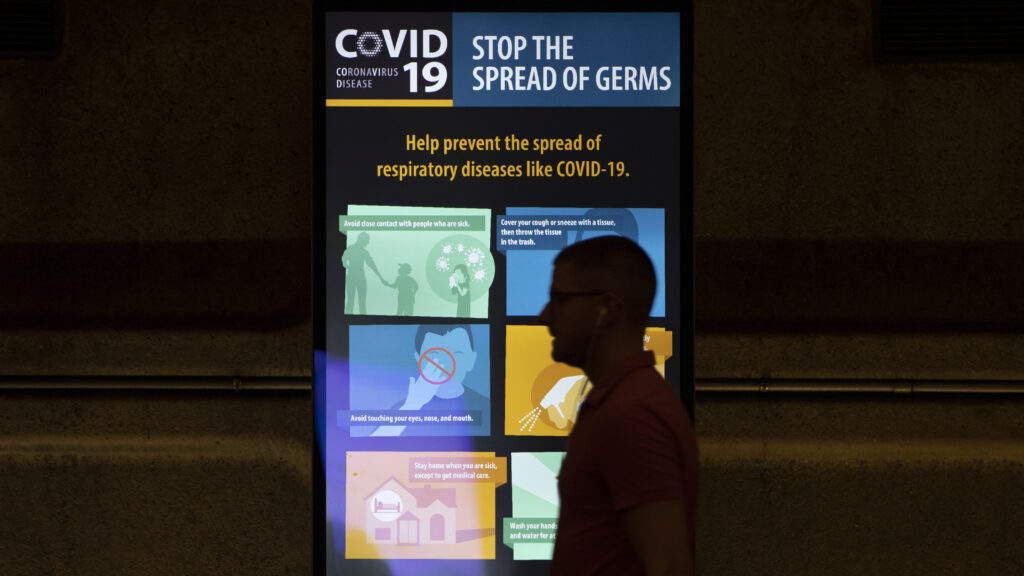
Public health infrastructure is facing an unprecedented challenge as critical federal programs experience significant budget cuts, compounding the already severe funding reductions at state and local health department levels. These systematic cuts are eroding the long-established protective mechanisms that have traditionally safeguarded community well-being and public health resilience. The cumulative impact of these funding reductions threatens to undermine years of strategic public health investments, potentially leaving communities more vulnerable to emerging health risks and challenges. As federal support continues to diminish, local health departments are struggling to maintain essential services and respond effectively to public health emergencies. These budget constraints not only limit immediate health protection capabilities but also risk creating long-term systemic weaknesses in our public health infrastructure. The ongoing reduction in financial resources represents a critical threat to the comprehensive health and safety networks that communities have relied upon for decades. MORE...
Statehouse Showdown: NC Lawmakers Clash Over Healthcare Price Tag
Health
2025-04-04 08:30:00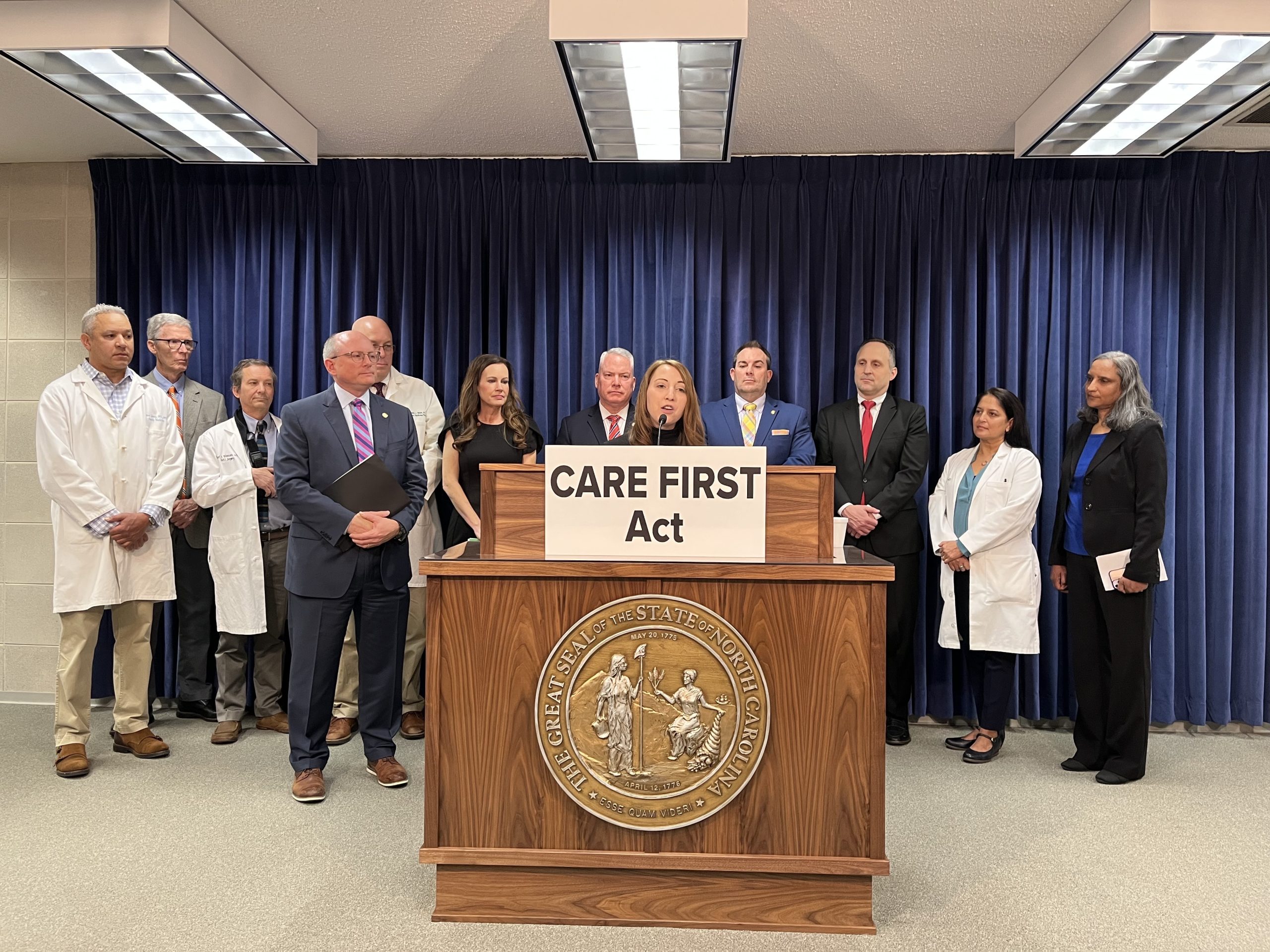
Healthcare Affordability: North Carolina Lawmakers Clash on Reform Strategies North Carolina's legislative chambers are at odds over critical healthcare reform proposals, with the Senate and House of Representatives presenting competing visions for improving medical access and affordability. At the heart of the debate is the complex issue of prior authorization—a process that has long frustrated patients and healthcare providers alike. The proposed approaches reveal stark differences in how lawmakers believe healthcare costs can be effectively reduced and patient care streamlined. While both chambers acknowledge the need for meaningful reform, their strategies diverge significantly, reflecting the nuanced challenges of healthcare policy. Prior authorization, a mechanism requiring healthcare providers to obtain approval from insurance companies before certain treatments or procedures, has been a particular point of contention. Lawmakers are exploring ways to simplify this process, reduce administrative burdens, and ultimately make healthcare more responsive to patient needs. As negotiations continue, patients and healthcare professionals are watching closely, hoping for a resolution that will make medical services more accessible, transparent, and affordable for all North Carolinians. MORE...
Beyond Fitness Trackers: The Health Revolution on Your Wrist
Health
2025-04-04 08:27:00
Revolutionizing Healthcare: How Wearable Technology is Transforming Preventive Medicine In the rapidly evolving landscape of healthcare, wearable technology has emerged as a game-changing innovation that empowers individuals to take control of their health like never before. These smart devices are not just accessories; they are personal health guardians that provide real-time insights into our body's vital signs and overall wellness. Modern wearable health devices go beyond simple step counting. They now offer sophisticated monitoring capabilities that track heart rate, blood oxygen levels, sleep patterns, and even detect potential early warning signs of serious health conditions. By providing continuous, non-invasive health data, these technologies enable proactive disease management and early intervention. Imagine having a personal health assistant on your wrist that can alert you to potential health risks before they become serious. From detecting irregular heart rhythms to monitoring stress levels and sleep quality, wearable technology is transforming preventive care from a reactive to a predictive model of healthcare. Healthcare professionals are increasingly leveraging these technological insights to develop more personalized treatment plans, ultimately leading to improved patient outcomes and potentially reducing long-term healthcare costs. As these devices become more advanced and integrated with medical systems, they represent a powerful tool in our collective journey towards more personalized, preventive healthcare. MORE...
- 1
- 2
- 3
- 4
- 5
- 6
- 7
- 8
- 9
- 10
- 11
- 12
- 13
- 14
- 15
- 16
- 17
- 18
- 19
- 20
- 21
- 22
- 23
- 24
- 25
- 26
- 27
- 28
- 29
- 30
- 31
- 32
- 33
- 34
- 35
- 36
- 37
- 38
- 39
- 40
- 41
- 42
- 43
- 44
- 45
- 46
- 47
- 48
- 49
- 50
- 51
- 52
- 53
- 54
- 55
- 56
- 57
- 58
- 59
- 60
- 61
- 62
- 63
- 64
- 65
- 66
- 67
- 68
- 69
- 70
- 71
- 72
- 73
- 74
- 75
- 76
- 77
- 78
- 79
- 80
- 81
- 82
- 83
- 84
- 85
- 86
- 87
- 88
- 89
- 90
- 91
- 92
- 93
- 94
- 95
- 96
- 97
- 98
- 99
- 100
- 101
- 102
- 103
- 104
- 105
- 106
- 107
- 108
- 109
- 110
- 111
- 112
- 113
- 114
- 115
- 116
- 117
- 118
- 119
- 120
- 121
- 122
- 123
- 124
- 125
- 126
- 127
- 128
- 129
- 130
- 131
- 132
- 133
- 134
- 135
- 136
- 137
- 138
- 139
- 140
- 141
- 142
- 143
- 144
- 145
- 146
- 147
- 148
- 149
- 150
- 151
- 152
- 153
- 154
- 155
- 156
- 157
- 158
- 159
- 160
- 161
- 162
- 163
- 164
- 165
- 166
- 167
- 168
- 169
- 170
- 171
- 172
- 173
- 174
- 175
- 176
- 177
- 178
- 179
- 180
- 181
- 182
- 183
- 184
- 185
- 186
- 187
- 188
- 189
- 190
- 191
- 192
- 193
- 194
- 195
- 196
- 197
- 198
- 199
- 200
- 201
- 202
- 203
- 204
- 205
- 206
- 207
- 208
- 209
- 210
- 211
- 212
- 213
- 214
- 215
- 216
- 217
- 218
- 219
- 220
- 221
- 222
- 223
- 224
- 225
- 226
- 227
- 228
- 229
- 230
- 231
- 232
- 233
- 234
- 235
- 236
- 237
- 238
- 239
- 240
- 241
- 242
- 243
- 244
- 245
- 246
- 247
- 248
- 249
- 250
- 251
- 252
- 253
- 254
- 255
- 256
- 257
- 258
- 259
- 260
- 261
- 262
- 263
- 264
- 265
- 266
- 267
- 268
- 269
- 270
- 271
- 272
- 273
- 274
- 275
- 276
- 277
- 278
- 279
- 280
- 281
- 282
- 283
- 284
- 285
- 286
- 287
- 288
- 289
- 290
- 291
- 292
- 293
- 294
- 295
- 296
- 297
- 298
- 299
- 300
- 301
- 302
- 303
- 304
- 305
- 306
- 307
- 308
- 309
- 310
- 311
- 312
- 313
- 314
- 315
- 316
- 317
- 318
- 319
- 320
- 321
- 322
- 323
- 324
- 325
- 326
- 327
- 328
- 329
- 330
- 331
- 332
- 333
- 334
- 335
- 336
- 337
- 338
- 339
- 340
- 341
- 342
- 343
- 344
- 345
- 346
- 347
- 348
- 349
- 350
- 351
- 352
- 353
- 354
- 355
- 356
- 357
- 358
- 359
- 360
- 361
- 362
- 363
- 364
- 365
- 366
- 367
- 368
- 369
- 370
- 371
- 372
- 373
- 374
- 375
- 376
- 377
- 378
- 379
- 380
- 381
- 382
- 383
- 384
- 385
- 386
- 387
- 388
- 389
- 390
- 391
- 392
- 393
- 394
- 395
- 396
- 397
- 398
- 399
- 400
- 401
- 402
- 403
- 404
- 405
- 406
- 407
- 408
- 409
- 410
- 411
- 412
- 413
- 414
- 415
- 416
- 417
- 418
- 419
- 420
- 421
- 422
- 423
- 424
- 425
- 426
- 427
- 428
- 429
- 430
- 431
- 432
- 433
- 434
- 435
- 436

